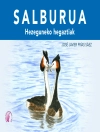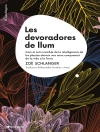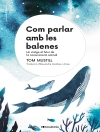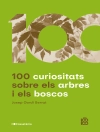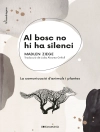‘Nature-study not only educates, but it educates nature-ward; and nature is ever our companion, whether we will or no. Even though we are determined to shut ourselves in an office, nature sends her messengers. The light, the dark, the moon, the cloud, the rain, the wind, the falling leaf, the fly, the bouquet, the bird, the cockroach-they are all ours. If one is to be happy, he must be in sympathy with common things. He must live in harmony with his environment. One cannot be happy yonder nor tomorrow: he is happy here and now, or never. Our stock of knowledge of common things should be great. Few of us can travel. We must know the things at home.’—from ‘The Meaning of the Nature-study Movement’
‘To feel that one is a useful and cooperating part in nature is to give one kinship, and to open the mind to the great resources and the high enthusiasms. Here arise the fundamental common relations. Here arise also the great emotions and conceptions of sublimity and grandeur, of majesty and awe, the uplift of vast desires—when one contemplates the earth and the universe and desires to take them into the soul and to express oneself in their terms; and here also the responsible practices of life take root.’—from The Holy Earth
Before Wendell Berry and Aldo Leopold, there was the horticulturalist and botanist Liberty Hyde Bailey (1858–1954). For Wendell Berry, Bailey was a revelation, a symbol of the nature-minded agrarianism Berry himself popularized. For Aldo Leopold, Bailey offered a model of the scholar-essayist-naturalist. In his revolutionary work of eco-theology, The Holy Earth, Bailey challenged the anthropomorphism—the people-centeredness—of a vulnerable world. A trained scientist writing in the lyrical tradition of Emerson, Burroughs, and Muir, Bailey offered the twentieth century its first exquisitely interdisciplinary biocentric worldview; this Michigan farmer’s son defined the intellectual and spiritual foundations of what would become the environmental movement.
For nearly a half century, Bailey dominated matters agricultural, environmental, and scientific in the United States. He worked both to improve the lives of rural folk and to preserve the land from which they earned their livelihood. Along the way, he popularized nature study in U.S. classrooms, lobbied successfully for women’s rights on and off the farm, and bulwarked Teddy Roosevelt’s pioneering conservationism.
Here for the first time is an anthology of Bailey’s most important writings suitable for the general and scholarly reader alike. Carefully selected and annotated by Zachary Michael Jack, this book offers a comprehensive introduction to Bailey’s celebrated and revolutionary thinking on the urgent environmental, agrarian, educational, and ecospiritual dilemmas of his day and our own. Culled from ten of Bailey’s most influential works, these lyrical selections highlight Bailey’s contributions to the nature-study and the Country Life movements. Published on the one-hundredth anniversary of Bailey’s groundbreaking report on behalf of the Country Life Commission, Liberty Hyde Bailey: Essential Agrarian and Environmental Writings will inspire a new generation of nature writers, environmentalists, and those who share with Bailey a profound understanding of the elegance and power of the natural world and humanity’s place within it.
Mengenai Pengarang
Zachary Michael Jack is Assistant Professor of English at North Central College, where he teaches courses in writing and rural studies. The great-grandson of Iowa conservation writer Walter Thomas Jack, Zachary is the author or editor of many books on agrarian, environmental and conservation themes, including Love of the Land, Black Earth and Ivory Tower, and The Furrow and Us.


